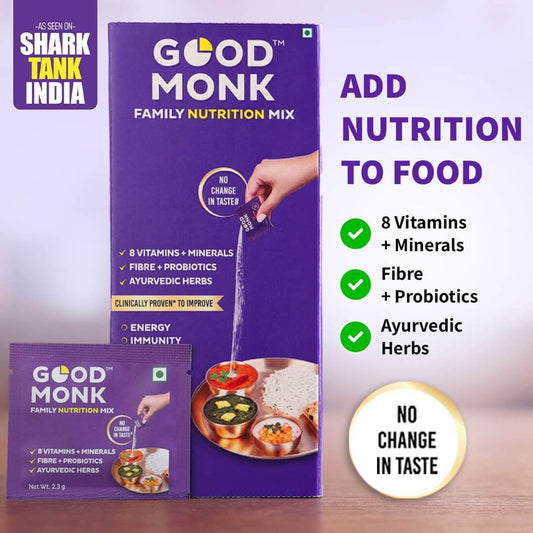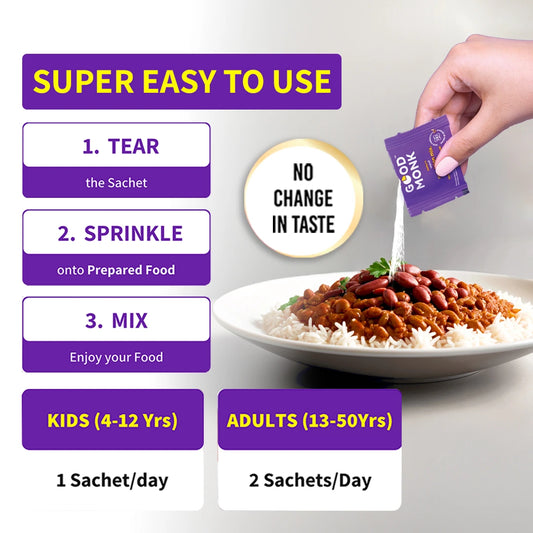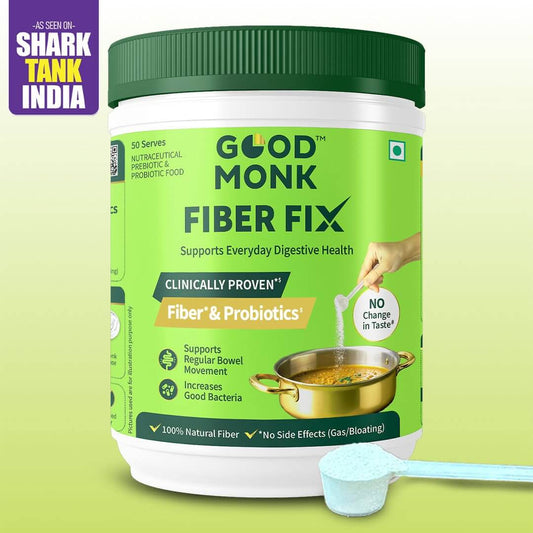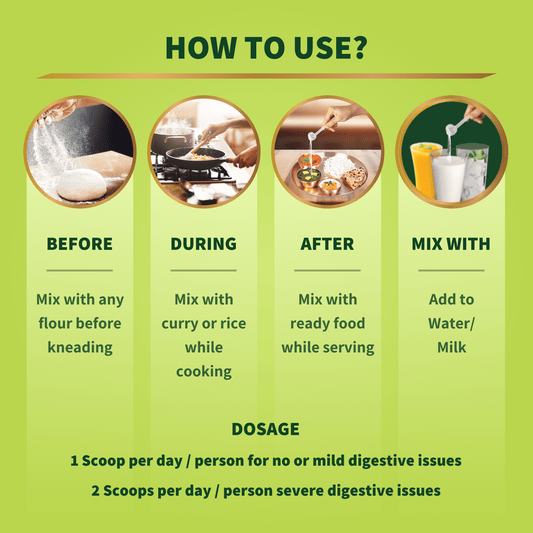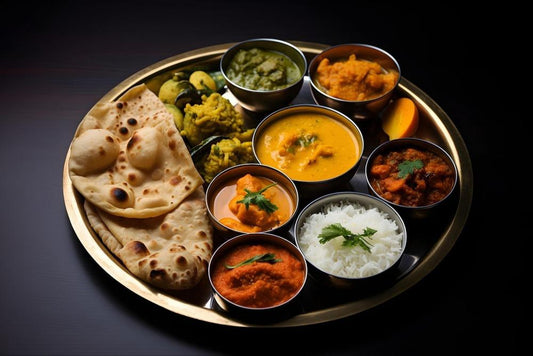Folate, or vitamin B9, is essential for cell growth, red blood cell creation, and DNA synthesis. Since folate is a water-soluble vitamin and the body cannot store vast amounts of it, it is crucial to consume meals high in folate regularly. A folate shortage can result in anaemia, which is especially dangerous for expectant mothers because folate is linked to neural tube abnormalities in the developing foetus. Inadequate folate levels have also been connected to higher risks of heart disease, some types of cancer, and cognitive decline. [1]
One should include foods containing B9 in their diet since folate is essential for overall health and plays a role in preventing numerous health concerns. In this blog, we'll look at 5+ foods that are great sources of vitamin B9 to ensure you get the daily recommended amount of folate and stay in good health.
What Is Vitamin B9 Function And Its Importance?
Vitamin B9 is a water-soluble B vitamin essential for many body processes. It is sometimes referred to as folate or folic acid. Its role in red blood cell production, cell division, and DNA synthesis makes it significant. Folate is particularly crucial during rapid growth and development, including pregnancy and infancy, as it is required to create and maintain new cells. Preventing neural tube abnormalities in developing foetuses is one of vitamin B9's most essential functions. [2]

16 Natural Vitamin B9 Sources
Here are the details of some of the top-notch B9-rich food spruces, including fruits, vegetables and plant-based sources that you must include in your diet:
Vitamin B9 Fruits And Vegetables
1. Broccoli
Broccoli is a cruciferous vegetable that is an excellent source of folate and other vital nutrients.
2. Citrus Fruits
Lemons, oranges, and grapefruits are citrus fruits high in folate and provide a nutritious and refreshing snack for our bodies.
3. Spinach
This leafy green vegetable is an excellent source of iron and is packed with nutrients like folate.
4. Brussels Sprouts
These mini cabbages are loaded with folate and make any meal more nutritious by simply adding it.
5. Asparagus
This spring vegetable has a great taste and provides a good amount of folate to our bodies.
Animal-Based Sources Of Vitamin B9
6. Eggs
Eggs contain a small amount of B9 in their yolk. Compared to plant-based sources, the B9 content in eggs is quite low.
7. Liver
Organ meats like liver contain moderate levels of B9, making them a good source for those who consume animal products.
8. Seafood
Seafood like shellfish and salmon contains a small amount of B9, but more is needed to fulfil the requirement.
9. Dairy Products
Products like cheese, milk and yoghurt contain moderate amounts of folate. For example, a cup of milk contains 12 mg of B9, contributing to almost 3% of the daily recommended intake.
10. Chicken
Chicken or breast meat is known to have some amount of folate. It is not as rich as liver, but a serving of 100 mg of cooked chicken can provide 2% of the daily recommended intake.
11. Legumes: Legumes which generally include beans, lentils, and peas have a lot protein, folic acid and fiber, making them a very healthy choice to generally include in your daily diet. Eating different varieties of cooked lentils regularly or every day, can give you about 180 mcg of folate, which is important for your overall health.12. Beets: These are very colourful and very nutritious vegetable, and by having just one cup of raw beets you can get 148 mcg of folate. So, eating folic acid foods beets can help you with heart health and improve blood flow because they have a high nitrate content, and also provide other skin and health benefits for you.
13. Nuts & Seeds: Nuts and seeds, like sunflower seeds and almonds, are good folic acid rich foods and by eating just a small handful can provide a nice boost to your daily intake. They also contain healthy fats that are good for your heart.
14. Wheat germ: Wheat germ is folate rich foods with the outer part of the wheat kernel and is filled with many important nutrients, especially B9, and eating just two tablespoons can provide about 51 mcg of B9, which can be added to smoothies or cereals.
15. Papaya: This sweet tropical fruit that is vitamin b9 foods contains about 60 mcg of B9 in it per cup, and is also rich in vitamins A and C, which help keep your skin healthy and boost your immune system, so you should consume it regularly in your weekly diet.
16. Bananas: Though bananas are famous for their potassium content they are also foods that contain folic acid, and a medium banana has about 24 mcg of B9. They're convenient to eat and a good vitamin b9 sources snack.
Thus, animal-based B9 Folate sources are not as concentrated as plant-based sources. So, individuals who follow vegan or vegetarian diets should focus on a folate-rich plant-based diet to meet nutrition requirements.

Conclusion
Maintaining general health and well-being requires knowing the value of vitamin B9 and including foods high in folate. These seven B9-rich foods offer many sources of this vital nutrient, ranging from citrus fruits and fortified cereals to leafy greens, legumes, and more. Make folate-rich foods a priority in your meals and take control of your health today. Investigate the variety of foods high in B9 on Good Monk, including Family Nutrition Mix and Healthy 50+ Nutrition Mix for Seniors, and start providing your body with the necessary nutrients for a healthier future!
Faqs
1. Are there any recommended daily intake levels for Vitamin B9?
Yes, generally the recommended daily intake for adults is 400 mcg of vitamin B9 or folate, and pregnant women should get at least 600 mcg to support fetal development and prevent any problems.
2. How can I ensure I'm getting enough Vitamin B9 in my diet?
To get enough vitamin b9 function, you should try to include and eat a variety of foods like leafy greens, legumes, nuts, seeds, and fortified grains in your daily or regular diet. You can also consider having some supplements if needed, especially during pregnancy.
3. What are the symptoms of Vitamin B9 deficiency?
Vitamin B9 deficiency can lead to and cause a lot of tiredness, weakness, mood changes, and slow growth in case of pregnancy. It can also cause anemia and problems in pregnancy if not treated or supplemented properly with vitamin b9 rich foods.
4. How can I increase the absorption of Vitamin B9 from food?
To improve absorption of vitamin b9 rich foods, you can try to eat it with vitamin C-rich foods like citrus fruits. Cooking can also help release more folate from foods like vegetables and legumes so you can do that too.
Reference
[1]- https://www.ncbi.nlm.nih.gov/pmc/articles/PMC3218540[2]- https://www.betterhealth.vic.gov.au/health/healthyliving/vitamin-b
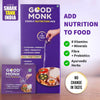
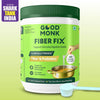

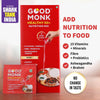

![16 Recommended Vitamin B9 Foods [Folic Acid/Folate] for 2024](http://www.goodmonk.in/cdn/shop/articles/10_Recommended_Vitamin_B9_Foods_Folic_AcidFolate_for_2024_3.jpg?v=1712230660&width=1100)
